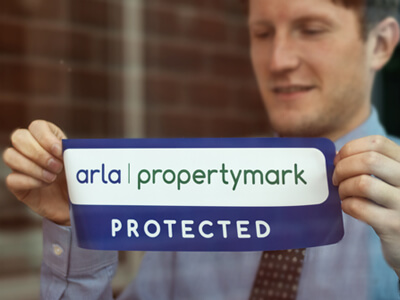It might surprise you to know that there are over 150 pieces of legislation that currently govern the lettings industry and with new legislation being introduced all the time being a self-managed landlord is becoming harder and harder. Following James Brokenshires, Secretary of State for Housing’s, announcement that all UK Landlords will have to be a member of a redress scheme many Landlords will want to rethink this decision.
Many landlords think property management is simply collecting the rent and sorting out maintenance on the property, but it is so much more far reaching than this. It only takes one gap in knowledge to land you in trouble.
We understand the desire to ensure your investment is as profitable as possible however one fine for non-compliance would change that profitability. So, can you afford not to get up to speed and understand all the legislation? Have you got the time to do so?
Over the past 2 years there have been several big changes in legislation for the lettings industry that have changed the way in which we manage properties and tenants. Scarily in some cases unless you are looking for them you would not always know that changes have taken place. An example of this would be the government’s ‘How to Rent’ guide. Your tenant must have seen the latest version of this guide and you need to have proof that they have been given it. ‘Helpfully’ the government changes the guide on a regular basis but does not tell you it has done so, it is up to you to check. But when should you check? Everyday? Every week? Every Month? At the time of writing, the current version is dated July 2018. It’s well worth checking that your tenants have been issued with the most recent version.
Other examples of legislation you should be aware of include;
GDPR
General Data Protection Regulations came into force on 25th May 2018. It is there to protect us all from data misuse. Its relevant to all companies that process personal data on behalf of individuals (i.e. names, addresses, email addresses) As a landlord you must consider how you deal with your tenants information, what you do with it and how you store it – you also need to consider who you pass it on to (contractors) and why – do you have your tenants permission to do so?
MEES
From April 2018 the Minimum Energy Efficiency Standards came into effect. This means that all private rented sector homes must have a minimum Energy Performance certificate rating of E, or renting will be prohibited. Failure to comply could leave you with a fine of up to £5,000!
Right to Rent Legislation
As of 1st February 2016 landlords must check that a tenant can legally rent residential property in England. Under Section 22 of the Immigration Act 2014 a Landlord should not authorise an adult to occupy property as their only or main home under a residential tenancy agreement unless the adult is a British citizen, or EEA or Swiss National, or has a ‘right to rent’ in the UK. How much do you know about your tenants? Are you aware of any changes to occupation? Under the Immigration Act Landlords have to regularly check all of their tenants have the right to rent in the UK. Failure to do so could lead to large fines and even imprisonment.
Smoke Alarms
From the 1st October 2015 it is a legal requirement that a working smoke alarm be present at every storey where there is at least 1 useable room and a carbon monoxide alarm in every room where solid fuel is used. Each Alarm must be in working order on the day a tenancy begins and recorded.
The Homes (Fitness for Human Habitation) Act
The latest piece of legislation..read our last blog to find out more; click here.
These are just a few of the issues you will need to deal with on a day to day basis as a self-managed Landlord…keeping up to date with legislation is almost becoming a full time job! If we manage your properties then you do not need to worry as all of this stress has been taken care of, if you are self-managing then please make sure you do your research and keep up to date with changes to legislation. If you aren’t sure about any of the above, I think now is the time to consider changing to a managed service. If this is the case then please contact the office – we’d love to take this stress from you.
Sarah Driscoll. Director





